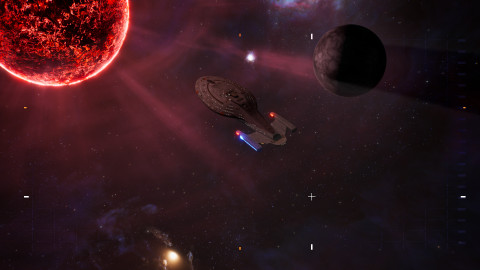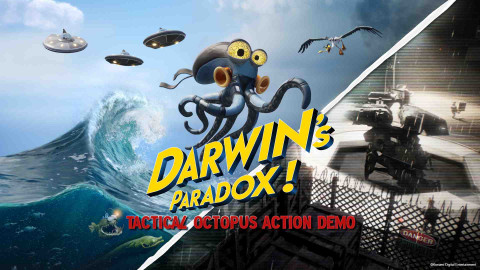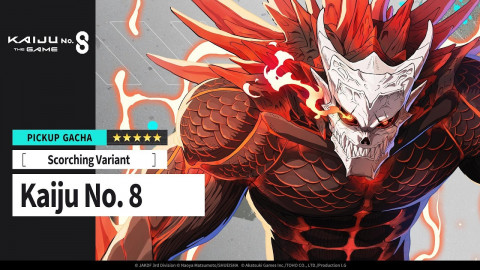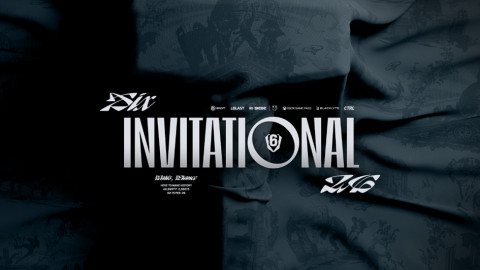
Bron “thesource” Mitchell has held as many roles in the esports industry as anyone. His resume consists of commentator, interviewer, video content producer, team coach/analyst and esports historian to name a few. As for the games he’s familiar with, that’s extensive as well. First-person shooters, MOBAs and fighting games, he’s comfortable with them all.
Recently, thesource was featured on the casting desk for the Heroes of the Dorm tournament where he did play-by-play commentating and provided analysts in-between matches to breakdown what we were seeing.
Prior to the event, thesource sat down with me to talk about his journey from a kid to esports historian; how he took the job of someone who challenged him; how Heroes has evolved over the years and what his future may hold.
Can you talk about your introduction to esports?
I’ve been playing video games since I was a kid. I actually wanted to make video games. I went to college for 3D-modeling and design and wanted to make video game characters but I’m not using any of those skills right now [laughs].
It was my sophomore year and I was at a friend’s house and his older brother was a big Starcraft fan, I mean massive. He was Grand Master and putting in all the hours to get good and he was like, “Hey, I’m trying this new game called ‘League of Legends’” and we start playing League of Legends. I get super, super into it and then six months later I start watching competitions. I started getting into all that and in 2011 or 2012 for some strange reason I said, “I’m going to become a caster.”
I remember watching a tournament and a commentator messes something up and Twitch chat just starts flaming him into oblivion, which Twitch chat is known to do, and he says, “I’d like to see you kids do better.”
And so, I took his job at ESL.
Do you remember who the commentator was who inspired you to get into it?
At this point, no. It’s been so many years and I only heard him commentate a couple of times. Basically, it stirred me to want to give it a try. So, I practiced in my dorm room off of VODs, as this was before there was a replay section in League of Legends, you could only see half-replays so you could only see half of the team’s perspective. I was sort of getting into it and getting interested in it then I managed to find an email of an ESL admin so that’s how I managed to get into casting.
I was commentating for a few years and then Riot took things in-house for the LCS and I transitioned into doing interviews for Leagueapedia. I went to MLG Dallas in 2013. After deciding to work at Leagueapedia for about a week, the CEO was like, “Hey, I need someone to show up, can you talk on camera? You commentated, right?” So I hopped on a plane and that was my first event.
You consider yourself an esports historian to an extent and you’ve worn numerous different hats within the industry. How has the scene evolved from your perspective over the years?
What’s interesting is that there are some people, specifically Thorin, who calls himself the “Esports Historian.” I respect the man a lot, whether or not I respect the man’s politics. When it comes to his esports analysis, he’s very good at that. He draws upon lots of knowledge from paying attention to what goes on. I’ve tried to make myself a student of esports history.
What’s interesting to see is, when you go from scene to scene you start to see how games evolve and who comes into the game changes the evolution.
Smite was a very interesting evolution how that game worked from both a developer and community side. You have League of Legends players coming in but you also have MMO players coming in so you have a very different blend than Heroes of the Storm which is primarily MOBA players from League, DOTA and Smite. Then you have Blizzard fans which makes for a whole different kind of ecosystem. That portion of how games and cultures develop has always been really interesting because you get different aspects that lead into the competitive side.
Very few Heroes of the Storm pro players, made it super far in other competitive games. There are exceptions like Zuna or the guys who played on Cloud9 and managed to get to the top very quickly. It’s tough to understand how player value works, how sponsorships work, how to build up your value as a player through streaming, content creation and how to negotiate contracts. We saw that when Roll20 got out of Heroes. It’s not as much that they wanted to but they couldn’t come to an agreement. No matter what party you put that on, it was clearly a breakdown in communication.

We don’t really have agents in Heroes of the Storm when it comes to player representation but you jump over to Overwatch and that’s a very different portion of the culture. There’s a lot of kids coming from Counter-Strike and Korea where there is a high-level of professionalism. The environment shapes the community and that directly shapes what the competitive scene will be like.
You mentioned a few titles in your prior answer, what does Heroes need to do to take that next-step to where players are represented better, sponsors feel that it’s a sound investment and just improving the scene as a whole?
It’s a slow roll from a couple of different angles. Blizzard is working on things like the Bit system and that’s being revamped going into this year. That portion of adding revenue to the team and adding an ROI (return on investment) for teams is good. You can’t really accelerate that too much more because Blizzard only has so many resources to do things at the right time.
From the team aspect, it varies team to team. In Europe you have teams like Dignitas and Liquid that are both creating content but also hold a level of prestige. There are a lot of North Americans teams with a lot of prestige but it’s just not the people who are currently involved. We don’t have TSM or CLG and Cloud9 has since dropped out. Those add to the general aspect of the player’s drive. Their drive comes from three places: the compensation they get, their drive to compete and their drive to represent their organization, country or region.
Week-to-week we’re kind of missing a little bit of compensation and a little bit of number three and that’s something that has to build itself up overtime. It’s unfortunate that Heroes needs more time because it had such a rough start competitively.
“Heroes marketing itself as a casual MOBA was a blessing and a curse. It got a lot of people interested because they weren’t afraid to try the game but it stagnated its competitive scene because people thought it couldn’t be complex.”
It’s possible that Blizzard could kick-start it. You can almost always give an esports stimulus package to your game by increasing the value of the league by adding more ROI but you can’t constantly hit the game with a stimulus package every time you have a problem.
The other way is for Blizzard is to convert more of their players into viewers and that’s something that they’re clearly constantly working on. So, it’s not as if everyone is not trying to do it, it’s just more things need to succeed for Heroes to get the growth it needs.
From your perspective, what does Heroes do better than their competition that sets them apart? There is this half-joke within the scene that goes “If Heroes came out five or ten years earlier, it would be much more popular,” since the timing was interesting.
I don’t even know if Heroes needed to come out ten years earlier. I think this is a point of contention for me when it comes to other people and Blizzard, in general. Two things happened.
One, Heroes came out at an interesting time. We had League of Legends, DOTA and Smite functioning at a reasonably high capacity. LoL was on the rise and DOTA was now starting to pick up steam. Smite was in a weird situation because they pulled a Riot too early and tried to follow their footsteps in terms of the way they were marketing their league, take everything in-house a year faster than Riot did and that caused its own personal set of problems.
Heroes marketing itself as a casual MOBA was a blessing and a curse. It got a lot of people interested because they weren’t afraid to try the game but it stagnated its competitive scene because people thought it couldn’t be complex.

The thing I like most about Heroes of the Storm is a combination of how heroes interact with each other, how drafts work and how the map system works.
We’re the only MOBA with a map system. That allows for a wider range of strategic possibility. I personally would like there to be more map bans as it could add more complex strategy but that doesn’t change the fact that you need to be able to play a wider variety of maps. You need strategies for multiple maps and it’s something no other game has.
The talent system also makes it unique in a couple of ways specifically because you can have a character drastically change its playstyle.
The problem timing-wise was that they were coming out with all these other new MOBAs so the new MOBA that people were willing to try was split three-ways and it was hard for Heroes to say that they were competitive when they basically weren’t.
Of all the jobs you’ve had in the esports industry, which was the most fun and which was the most challenging?
Commentary is always the most fun. When I got out of League and I was interested in working with Heroes I spent some time working with some players and some teams, I quickly realized I wanted to go back to commentary and that I missed it.
As for what is most challenging...running teams. Events are unpredictable and difficult but an event still follows a general set of operational rules. Running teams and working with players is the most volatile thing I’ve ever done in esports. It is challenging, its a headache, everything is on fire, everything is not on fire, it’s a lot to deal with.
Scrolling through your Twitter timeline, it’s a collage of different esports. (League, Heroes, OWL, etc.) How do you divide up your time to be able to focus on four different esports scenes and talk about them with the level of competence that you do?
When I’m at home, it’s my three-monitor setup. In general, it’s come down to, I’ve always had a good mindset when it comes to studying, learning and understanding. I realized that when I was transitioning from being a commentator to journalism to doing some on-camera interviewing that I couldn’t just be a “League kid” anymore.
Fun fact: I could have been one of the first original Smite casters but I didn’t because I thought I could do it in League.
“Of my three goals, they all have to do with competition. One is telling the story of the competition, one is facilitation competitive and one is literally making competitive environments. Being a part of any of those three aspects is really what matters to me.”
I spend a lot of time paying attention to what everyone else is doing but in terms of moving from one game to another and learning the competitive aspect, MOBAs are pretty simple. It just comes down to memorizing new names and understanding the differences in the meta. That stuff transitions pretty well in my brain. At the end of the day, it comes down to a drive to understand and esports has become my life for better-or-for-worse.
Long term, where do you see yourself within this industry as you’ve done a lot of bouncing around? Do you see yourself settling in one particular role or game?
I have three-ish goals. I’d love to be able to run events but that’s a very specific career path. I’d love to be a full-time commentator, I don’t mind if it’s multiple games, that would be my ultimate goal. Aside from that, I would want to be running a major team or making events.

To me, the reason I stick around is that, it’s not that I don’t love Heroes of the Storm, it’s more so that I love competition and the competitive environment. I realize I can get that from multiple games but I’m finding that I’m getting the most of that out of Heroes.
Of my three goals, they all have to do with competition. One is telling the story of the competition, one is facilitation competitive and one is literally making competitive environments. Being a part of any of those three aspects is really what matters to me.
-

Tim Rizzo is the editor and a reporter for Inven Global. He joined the company back in 2017.
Sort by:
Comments :0





